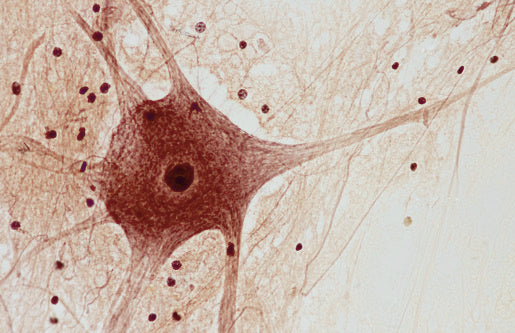Wellness
Forming positive canine relationships - a journey in dog training
Sometimes our furry babies can lead us to our true calling
When Emily Reed moved to Nashville, she didn't expect her new boxer pup, Tony, to set her on an entirely new career path. "It was around the pandemic time, and I was getting him trained with a company in East Nashville," Emily recalls. "I just loved their approach."
Growing up in Northeast Georgia, Emily was no stranger to dogs. She volunteered at the Humane Society and even joined the Humane Association when she first moved to Nashville, seeking out kindred spirits who shared her love for dogs.
The gym business she co-owned with some friends was facing uncertainties during COVID, so when the dog training company's owner asked if she'd be interested in joining their team, Emily jumped at the chance. "I started part-time but quickly realized I wanted to do this full-time. I didn't want to be inside doing spreadsheets. I wanted to connect with dogs."
A new calling
While undergoing rigorous training, Emily leaned on her degree in behavioral science to draw on the parallels between human and canine behaviors. "Consistency, association, and repetition work for both humans and dogs," she explains. Embracing her entrepreneurial spirit, she launched her own business, Nashville Family Dogs, which has flourished over the past two years.
"I just love working with dogs and seeing how it can change a family's dynamic. When a 'problem child' dog starts behaving well, it transforms the family. It's like giving kids positive memories of their family dog instead of stress."
When asked about her decision to start Nashville Family Dogs, Emily attributes it to a series of small, affirming moments rather than a single spark. "It's been a flow of natural progress, almost like a sign that this is my path."
Balanced Training: The Core Philosophy
Emily’s approach to dog training is rooted in balanced training, which uses both positive and negative associations. "I use tools like e-collars, leash pressure, and treats," she says. It's about finding the right mix for each dog because, just like people, dogs are unique."
Emily emphasizes patience and consistency, noting that it can take between 700 and 1500 repetitions for a dog to solidify a command.
One of her core philosophies is teaching dogs to respect their owners. "Love and respect are separate. Respect means not jumping, rushing through doors, barking for attention, or whining when you're not there. Dogs should add to your life, not complicate it."
Tailored Training to Each Dog
When it comes to training, Emily believes in a personalized approach that meets the needs of each individual dog. “It’s all about finding the right mix for the dog and what works for them.”
There can often be many misconceptions about dog training. "Many people want only positive training, but I believe a balance of positive and negative reinforcement is necessary. Dogs don't have the same emotional lens as humans, so balanced training helps them understand boundaries better."
“I also don't want pet parents to come back to what I call, a ‘Robo Dog’ that’s stripped of its personality and only performs tricks on command,” she adds.
Training the human is just as important as training the dog. "I can get a dog to follow commands in my space, but if the owners don't maintain consistency at home, the dog will revert to old behaviors."
For new dog owners, Emily advises setting boundaries early. "Even with puppies, start with simple commands and impulse control exercises. Leash pressure training can be very effective."
The most rewarding is the confidence that builds in the owners. "Seeing an owner beam with pride when their dog behaves well in public is priceless. It's about fostering a connection where the dog not only loves but also respects their owner."
A Soul Connection
Emily’s dog, Tony, first came into her life during a transition period. “I love that he came at such a perfect time. It just feels like he helped bring me back to a healthy place. He's a soul connection that I've never had before.”
Describing him as her favorite coworker, Tony is also trained to assist her in working with other dogs. His calm demeanor makes him an invaluable asset, especially when dealing with reactive dogs. Tony's ability to foster a safe and positive environment makes him not just a companion for Emily but a vital partner in her work.
"For any dogs that are reactive, I utilize him to walk past and do greetings, which are a neutral interaction needed for dogs in a safe environment. He's trained to sit and be the calm energy around those types of dogs."
Meet Tony
Age: 5
Breed: Boxer
Tony’s personality: Goofy, nurturing, playful
Cutest quirk: Tony will back up and sit in my lap. I think he thinks he's little, but he's about 67 pounds, so he's not small by any means! I thought about breaking him out of the habit, but then I said, “No,” that's his signature move.
Best trick: I like to longboard, and he’ll run next to me while I'm riding. He stays close to me when I ride. I’m trying to get him to a place where he can stand on the longboard so he can do it too.
Favorite treat: A client of mine makes these peanut butter treats baked into little squares. He loves them and they’ll bring them in for the other dogs I train as well.
Go-to Activity: He loves his herding ball! He runs around for hours playing with it. Sometimes we have to take it away from him because he gets so fixated on it.





